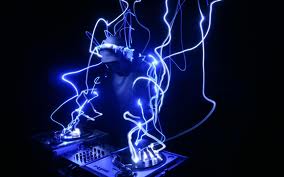Becoming a radio disk jockey requires a strong vocal presence, a willingness to work unusual hours for low pay, and the flexibility to move from station to station or even from state to state.
An entry-level radio DJ may also be responsible for a station's clerical work or commercial production, so a background in office management or electronics may also prove useful.
A radio DJ's workday can range from a four hour shift on the air to a day-long remote broadcast from a distant location.
A radio DJ may be asked to create his or her own advertising copy , so a strong writing background is fundamental.
A number of colleges and universities offer broadcasting as a major, so a radio DJ candidate should enroll in a suitable program with a radio broadcasting component.
Working as a campus radio DJ can provide real world experience, along with a more professional air check tape. Although a degree is not strictly required in order to break into the radio business, program directors often give hiring preference to degreed candidates.
College programs can also provide technical training for a radio DJ assigned to work a board, radiospeak for operating a studio control panel.
.jpg)